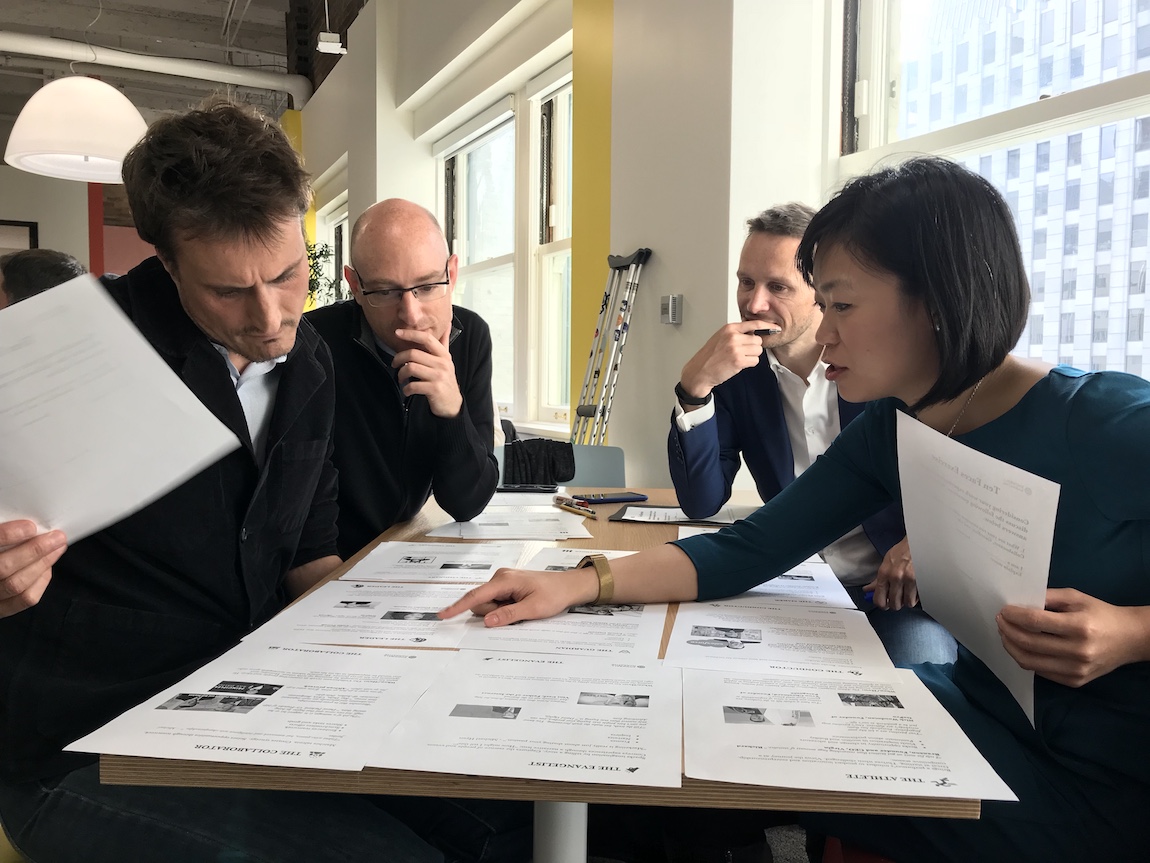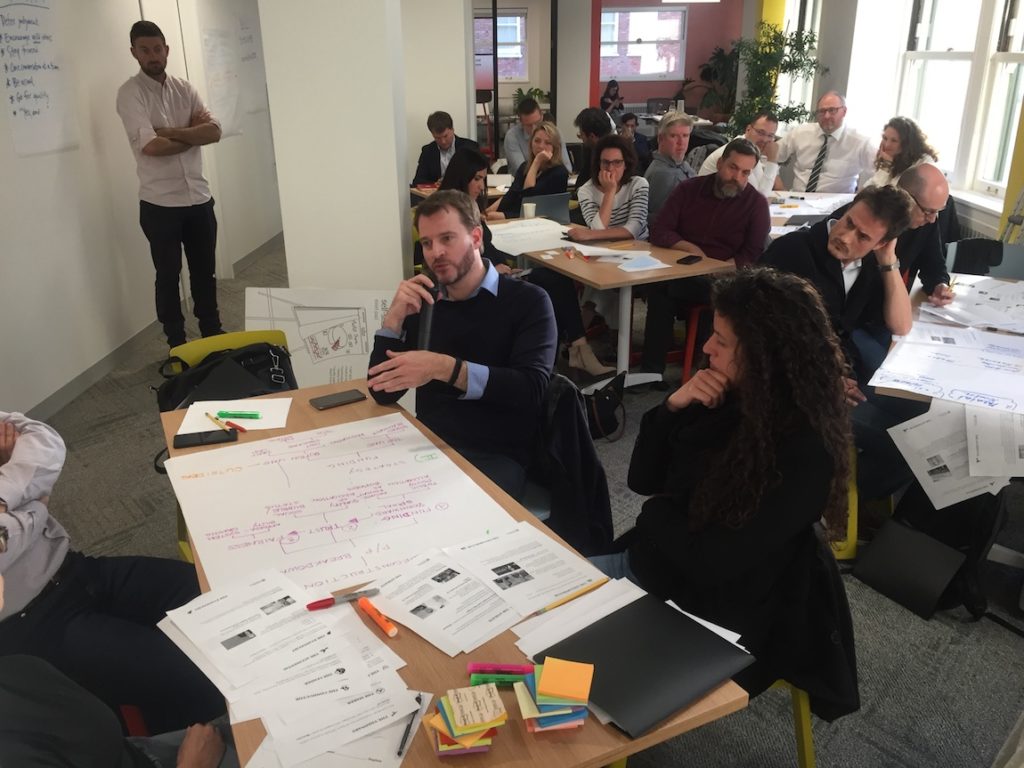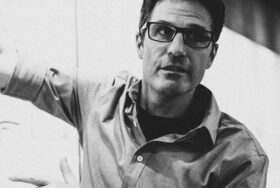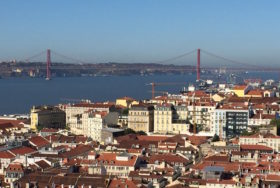
What do you get when you mix together a European Space Agency astronaut, a French senator, an officer of the Gendarmerie nationale, add a select cadre of entrepreneurs, bankers and intellectuals from around the world, and spice up the room with San Francisco’s local talent pool of tech professionals and entrepreneurs? Voilà: the perfect recipe for a collaborative Schoolab SF braintrust.
The topic for our workshop this week was Co-Creating Public-Private Innovation, hosted with Mathieu Aguesse, CEO of Schoolab SF, an innovation studio in the heart of San Francisco’s financial district. The inviting space is a doorway to the Silicon Valley tech ecosystem, and a hub for an international community of entrepreneurs, students, and corporate partners working together on a variety of projects and programs. Special guests from the Institute of Higher Studies for Innovation and Entrepreneurship (IHEIE) were in town for an immersion tour of local ventures, and we wanted to serve up the special sauce, an interactive lab where we explored scenarios in transportation, housing, health and education, with key takeaways for an expanded international vision.
We provided a format that met our visitors on their own high level, with the debut of the Schoolab Council, an invitation-only selection of professionals from our network: an innovative strategist at a national consulting firm, the founder of an international SF-based immersion program, a mobility startup founder, the creator of a tech hub, a top Silicon Valley lawyer, and a corporate intrapreneur from a giant French IT consulting firm. After some quick matchmaking, we piloted material from our new book on entrepreneurship. Participants found their core “Faces”: the Guardian, who views empathy as a lens to understand and better serve customers, improve lives and heighten human interactions. The Maker, who prototypes everything and learns by doing. The Conductor, a collaborator extraordinaire who designs systems-level approaches to business. The Outsider, whose Zen-like “beginner’s mind” offers a fresh take on legacy technologies. The group assembled teams to tackle challenges together.

Solving homelessness and fixing transportation by 2030
After a fun and dynamic teambuilding exercise, the group homed in on our next activity, a brainstorm to imagine a better city. We asked the groups to problem-solve current issues. What stakeholders and what kinds of entrepreneurial Faces would best come together to ensure a successful project? Taking into account emerging technologies and a 10-year timeline for implementation, what could they create?
Ideas for addressing San Francisco’s shocking homelessness problems ranged from the fantastical (Dune-like “stillsuits” that would harvest the body’s fluids) to the European-influenced (state-based healthcare), to the imminently doable: 3D-printed houses, blockchain-based tokens for social services, AR- and VR-based mental health solutions (e.g, AI companions), and prepaid public data connections for the homeless (in exchange for medical treatment or civic rewards), allowing cities to track, monitor and predict behaviors and needs.
Mobility solutions to improve transportation were equally creative. Firing up the Hyperloop to connect San Francisco with the peninsula. Dividing street lanes into designated travel zones for e-bikes, e-scooters, and pedestrians. Implementing social ratings to abate infractions. Adding self-driving ferries and submarines to the bay, and incentivizing people to conduct more virtual meetings for work and social reasons, to keep people off the roads.
Far-fetched? Perhaps. But a whole lot more stimulating and interactive than SF’s standard broadcast-model tech event. Everyone went away with a greater sense of connectedness, buy-in, and hope for a better world. And for us, it was further proof that the secret to a strong workshop is what happens when you get smart people in the room. The co-operative, collaborative magic that materializes when you bring together a talented mix of people, step back, and let them co-create. The Schoolab Council is here to stay.


